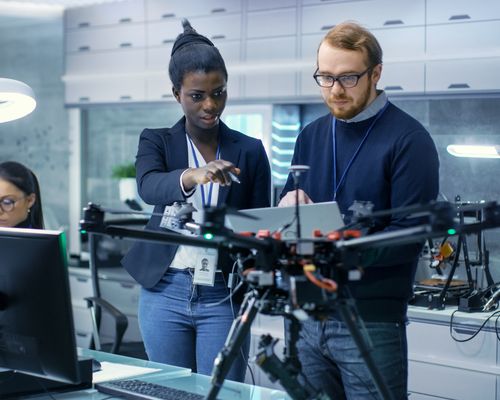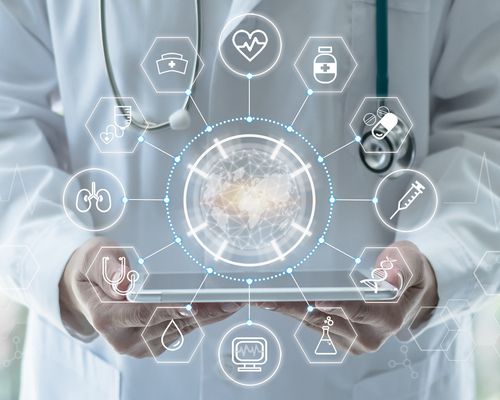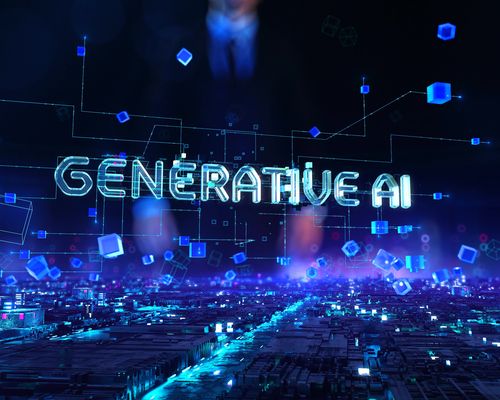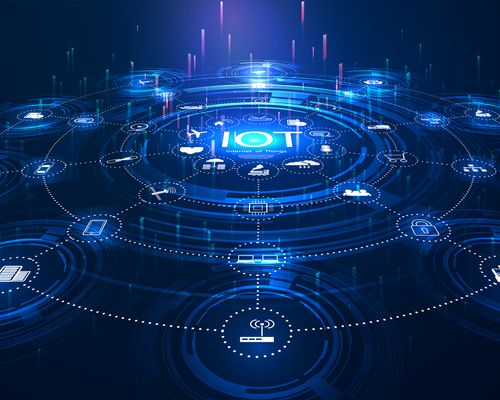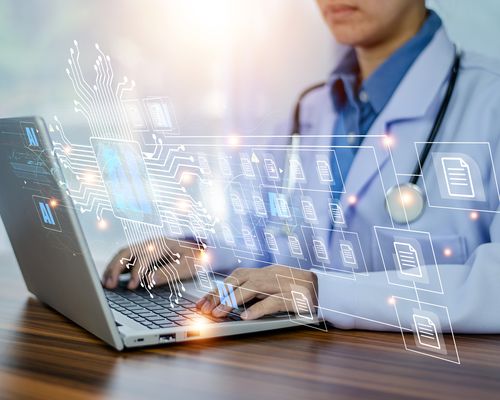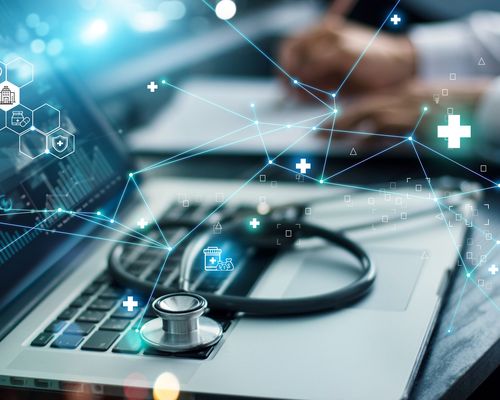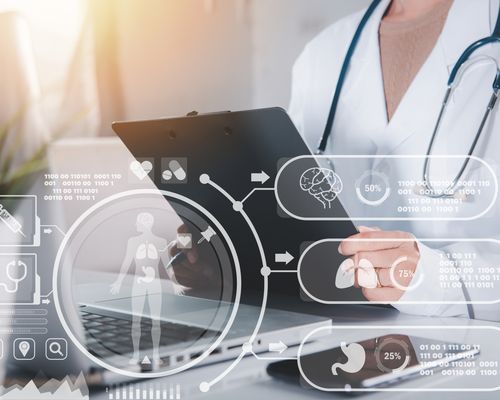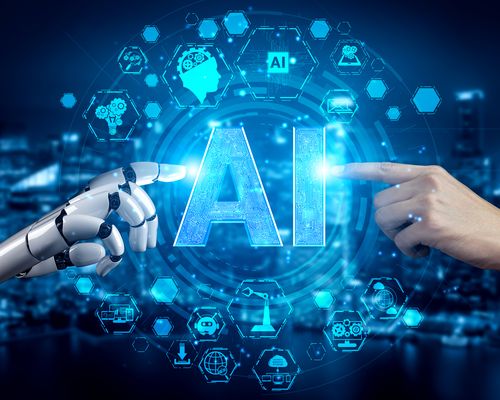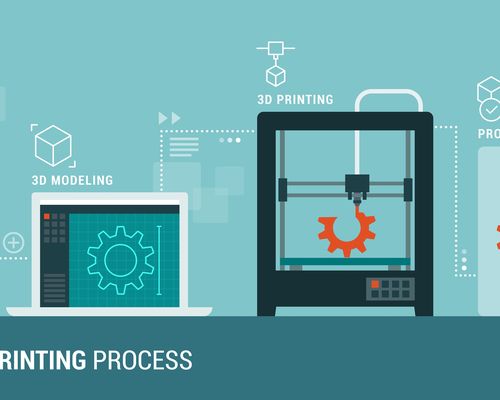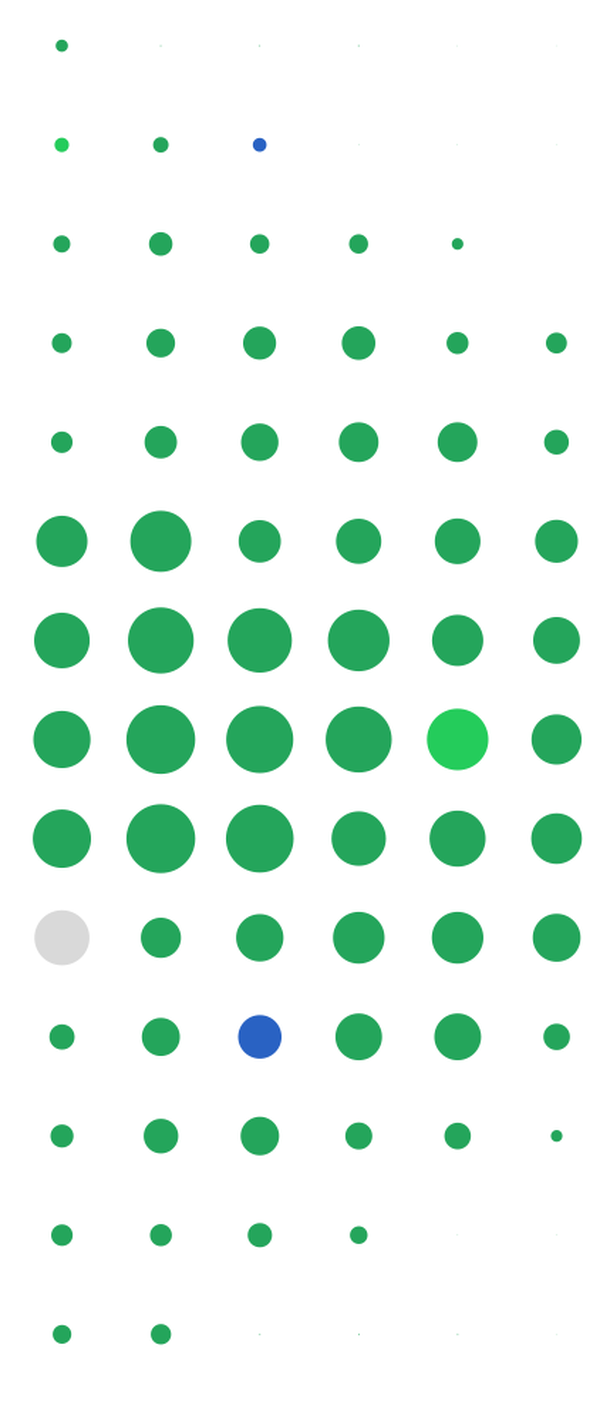
Labelled ITEA Call 2023 projects
Strong focus on healthcare and generative AI
The ITEA Community has actively participated in ITEA Call 2023, submitting very interesting and high-quality proposals. Nineteen of them were labelled by the ITEA Board in March 2024, representing an effort of more than 2,650 person years and involving partners from 22 countries. As usual, we see a good balance between SMEs that have the agility to innovate -representing more than half of the effort - along with large industries, which can quickly bring the outcomes of the projects to the market, and research centres that provide beyond state-of-the-art research.
The level of international cooperation is very high this year, with at least four countries involved in all the projects and at least six countries represented in nine of the 19 projects. Türkiye is involved in 14 projects, and we also see very good participation of organisations coming from Portugal, the Netherlands, Great Britain and Germany, all of whom have partners in at least 10 labelled projects.
Four of the eight ITEA key challenges are well addressed by the ITEA Call 2023 projects. Smart Health is the most important topic in this Call, with six projects, closely followed by Smart Engineering with five projects. Smart Communities and Smart Industry are well addressed with three projects each.
The most noticeable aspect of ITEA call 2023 is the technical focus of the projects on generative AI. This new technology, which took off in 2023 and has since matured, will be researched and used by at least nine of the labelled projects. The ITEA programme has been agile in allowing consortia to address this technology very quickly, helping the ITEA Community to benefit from new innovations based on generative AI. In this Call we see also quite a few projects developing innovations based on remote monitoring of patients or people for healthy living. The other technical topics are Artificial Intelligence (besides generative AI), Internet of Things, Digital Twins and Robotics. Some of the projects also have ambitious objectives to contribute to more sustainable solutions in software engineering and industry.
In summary, the ITEA 2023 Call is composed of very ambitious and international projects. It has shown the ability of ITEA to quickly react to the emergence of generative AI technology. We wish all projects good luck for the national applications and hope to see them kick off soon.






ADVISOR
Cooperative Missions of Autonomous Vehicle Swarms for Surveillance Tasks
Project leader
DEMCON
(The Netherlands)
The ADVISOR project addresses a multifaceted problem in the autonomous vehicle (AV) industry – the lack of seamless interoperability between different classes of AVs: airborne, under- and on- water. The ADVISOR framework enables efficient development, testing, and execution of AV/swarm-based inspection systems. It provides capabilities to manage various aspects of intricate processes, workflows, and interactions, contributing to the early detection of issues, ensuring the reliable and safe operation of AV/swarms. With solutions that boost efficiency, cut costs, enhance security, and reduce environmental impact, the project promises substantial industry impact across sectors.






AIDESL
Fully Automated AI Data Extraction from Scientific Literature
Project leader
DistillerSR Inc.
(Canada)
The AIDESL project aims to automate text extraction from scientific literature using AI models, reducing time and errors in systematic literature reviews (SLRs). By leveraging AI and workflow automation, the project seeks to speed up SLRs, improve accuracy and lower reviewer fatigue and burnout. This initiative targets key challenges in healthcare, such as timely data access, safety surveillance, and innovation. AIDESL goal is to establish standards for AI in research and speeding the accessibility of data to improve the equitable development of new health innovation and knowledge for all.




AdOff
Adaptive Office
Project leader
Boolean bv
(Belgium)
In current office environments employees express dissatisfaction with their (shared) office design, which risks harming their health, well-being, productivity and social relations. Current adaptive technologies tend to operate independently, neglect user needs, and lack evidence of their combined impact. The AdOff project proposes integrating automated and voluntary data to identify office risks, consider worker preferences, and measure impact objectively. New sensing solutions will monitor the office and occupants, while a data platform will collect and analyse data for evidence-based design and management. With these innovations the user will be put central in office management decision making .





CHS-Care
Integrated Platform for the Provision of Health and Social Care in the Community
Project leader
HIGOE
(United Kingdom)
The CHS-Care project aims to address the challenges posed by the growing elderly population in Europe, focusing on efficient health and social care delivery. CHS-Care is focused on developing a patient centered, open and integrated remote monitoring platform to provide health and social care for the elderly. By leveraging digital health tech, wearables, sensors, and AI, the platform empowers caregivers, reduces hospitalisations, and enhances care outcomes. This patient-centric, AI-driven platform targets seamless collaboration among stakeholders, improving data analysis, optimizing workflows, and ultimately enhancing patient care while supporting healthcare professionals.




ELFMo
Engineering Large Foundational Models for Enterprise Integration
Project leader
University of Helsinki
(Finland)
The integration of Large Foundation Models (LFMs) and Generative AI into business, while expansive, introduces a wide array of risks and challenges due to costs, compliance issues, and technical complexities. The ELFMo project aims to address these challenges by providing a framework for effective integration, also enabling enterprises to navigate legal, security, and ethical concerns while aligning with European regulations. ELFMo empowers organizations to reliably integrate LFMs and Generative AI into their infrastructures and offerings, allowing them to maintain control over risks, challenges, and opportunities.








GENIUS
Generative AI for the Software Development Life Cycle
Project leader
Institut for Automation und Kommunication (IFAK)
(Germany)
In the ever-evolving landscape of software development, the GENIUS project emerges as a collaborative initiative addressing challenges posed by manual-intensive processes and the untapped potential of Generative AI. In the GENIUS project, we aim to develop automated solutions and customized tools to enhance the different phases of the development life cycle, leveraging the advanced capabilities of Generative AI and Large Language Models. These innovative methods and tools will support software engineers with generated software artifacts such as requirements, code, and test cases, comprehensible documentation and guidelines tailored to company-specific data, offer software quality analysis and improvements, and provide recommendations with professional chat functionalities.








GreenCode
GreenCode: AI/ML Driven Software Optimisation to Reduce Cost and Climate Impact
Project leader
Digital Tactics Ltd.
(United Kingdom)
The climate and economic impact of sub-optimal software is a high-scale problem, that poses a further societal risk in times of energy stress. The GreenCode project addresses the problem of software and platform optimisation by leveraging specialised generative AI and Machine Learning to optimise and certify software for energy efficiency, enhancing developer productivity, code longevity, and ICT system value. Deployable to new and legacy systems, it performs quality assurance, modernisation, maintainability, documentation, and security checks, reducing climate impact while increasing economic value for businesses, public institutions, and end users.







HOMEPOT
Homogenous Cyber Management of End-Points and OT
Project leader
ERSTE Software Limited
(Türkiye)
In today's tech landscape, where each device comes with unique software and hardware, staying in control is increasingly challenging. The HOMEPOT project aims to develop a single, secure platform that makes managing these diverse devices easy, benefiting both manufacturers and users. The goal is to simplify the management of a wide array of Operational Technology (OT) and Internet of Things (IoT) devices, offering streamlined, secure management, enhanced deployment speed, security, resource management, and advancing smart, connected ecosystems. This could revolutionise device management in home automation, enterprise IT, and smart cities.



MONA LISA
Monitoring and Analytics for the whole Lifecycle, on Models, Hardware, and Software
Project leader
Teledyne FLIR Systems AB
(Sweden)
Cyber-physical systems (CPS) are inherently complex due to a tight coupling between software and hardware. Such systems affect our safety, so they must be trustworthy. The fragmentation of tools across the system development lifecycle results in knowledge loss, prolonged time-to-market, and increased costs. The MONA LISA project integrates hardware-software co-design across the lifecycle, connecting and improving existing tools with visual analytics. By integrating systems, it improves safety, diagnostics, and validation across different environments. Additionally, it contributes to open-source projects, advancing monitoring solutions not available today.




MedGPT
Medical GPT Revolutionizing Healthcare with Ethical AI
Project leader
SemLab
(The Netherlands)
Large Language Models (LLM) tools have made significant advancements in the healthcare industry, but European healthcare faces challenges in complying with new AI regulations while ensuring responsible use of advanced GPT LLM technology. The MedGPT project is addressing privacy and ethical concerns by embedding ethical AI and European GDPR & MDR compliance into its platform, utilising European-based LLM with the aim to set the standard for Medical GPT applications globally. This marks a paradigm shift towards smarter health applications, superior efficiency, accuracy and scalability, potentially disrupting current high-maintenance, rigid healthcare systems.





Narrate
Providing trustful and ethical personalised conversational interfaces on top of news and information
Project leader
VRT
(Belgium)
There is a current need to adapt content for conversational interfaces like ChatGPT, ensuring interaction, personalisation, and ethical AI responses. The Narrate project will create an innovative AI platform that can adapt to evolving AI technology and domain-specific market demands. It will explore the feasibility of specialised models designed for specific domain contexts and the integration of domain-specific knowledge with large-scale, general-purpose language models. Narrate will employ narrative design to create and evaluate ethical, user-centred multimodal conversational interfaces tailored to various use cases in media, human resources, and engineering software services.







PHRESH
Patient Health Response in Emergent and Secure Habitats for Connected Healthcare
Project leader
MEDrecord BV
(The Netherlands)
Promoting health equity requires overcoming barriers with remote digital health technologies, ensuring secure data exchange and regulatory alignment. The PHRESH project aims to improve health risk assessment, emergency response, and treatment by integrating advanced technologies like sensors, real-time analysis, advanced data and network connectivity and quantum-secure encryption, prioritising privacy and precision. This innovative approach holds the potential to unlock infinite possibilities, optimising emergency response and treatment procedures.



REMO
Remote patient-targeted health monitoring to reduce clinical workload
Project leader
Instituto Superior de Engenharia do Porto (ISEP)
(Portugal)
Shortages in healthcare workers and changing demographics ask the use of home-based care, which improves monitoring, patient compliance, reduces costs, and frees up healthcare facilities for critical needs. The REMO project will innovate continuous and unobtrusive monitoring in professional healthcare and provide support to clinicians, patients in their treatment and optimal recovery at home by providing the right information at the right time for the right person. REMO will address three healthcare market segments: the Healthcare market in general, the Remote patient monitoring market and the Healthcare AI market.






ResilientEnterprise
Improving Resilience of Enterprise Workforce and AI to Operational Challenges
Project leader
VTT Technical Research Centre of Finland Ltd.
(Finland)
Resilience is the ability to adapt easily to changes. AI can support the human workforce in dynamic operational environments, but it can also impose high cognitive demands on human employees, especially if the AI itself is inflexible. The main challenge addressed by this project is: How can humans and AI adapt to each other and to changes in operational environments in practical ways? Solutions include implementing a "resilience by design" framework in use cases such as perceptive sustainable workplaces, hospital robots, and elderly driver assistance.




SIREN
Safety & Incident Response for building Emergency Networks
Project leader
KoçSistem
(Türkiye)
To improve the efficiency and effectiveness of humanitarian aid operations and ensure timely assistance for the most vulnerable populations during disaster situations, the SIREN project focuses on enhancing disaster management and humanitarian aid logistics for fire, flood, and earthquake scenarios. The project seamlessly integrates Geographic Information Systems (GIS) and an advanced Disaster Management System, including case coordination, resource mapping, and AI support for data analysis. Additionally, the project incorporates a robust communication network support system, providing expanded emergency connectivity coverage and quality of service assurance to disaster effected area.



VISION
Virtual Integrated Supply-chain Improvement with Optimized Networking
Project leader
Electronic Media Services Ltd
(United Kingdom)
Supply chain management faces challenges like material tracking issues, delays and increased costs. The VISION project focuses on the construction, mining and aerospace sectors, integrating advanced technologies like Digital Twins, Augmented Reality (AR), and Ultra-Wideband (UWB) to establish a connected, intelligent supply chain system. By leveraging innovative technologies and industry-specific insights, the project is well-positioned to transform supply chain management and set new standards in efficiency, traceability, resilience, sustainability and security.



Valid3D
Valid generative design for 3D printing
Project leader
Materialise
(Belgium)
Valid3D is aimed at quality assurance and generative design in metal 3D printing. The current state is a slow and difficult quality assurance process and often necessary design iteration loops. Both lead to a time-consuming, inconsistent and expensive AM process. Valid3D enables flexible manufacturing processes for the medical and aviation industries. Both application industries are highly regulated and have gained a lot of knowledge about quality assurance and their approval processes in the past. This knowledge is brought together in the Valid3D project to enable a faster approval process for both industries. It is necessary to connect all parts of the production process through data and therefore each part of the value chain is covered by partners of the consortium. The linking of all available process data (design, material, process monitoring and testing) is also enriched with virtual test methods such as simulations. This broad database is used to develop AI models, which can be used to provide feedback to the individual process steps. The result is a holistic approach in which data becomes information and information becomes knowledge about the AM production process. This makes it possible for the first time to compare the freedom of component design in the construction process with the results of quality assurance and thus ensures the applicability of the designed components. The outcome is a framework with open interfaces, defined data models, trustable standards, automated solutions and data-driven quality assurance.

Other chapters
Use the arrows to view more chapters
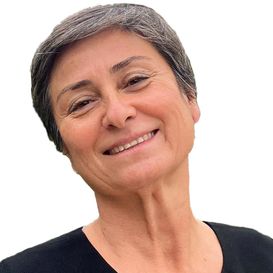
Editorial
By Zeynep Sarılar

Country Focus: Finland
Software enabled digital transformation

Bittium
Where R&D is fundamental to business impact
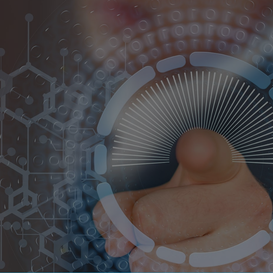
ITEA Success story: CyberFactory#1
Addressing opportunities and threats for the Factory of the Future

Inclusivity and diversity driving innovation in the ITEA Community
Insights from the VMAP project
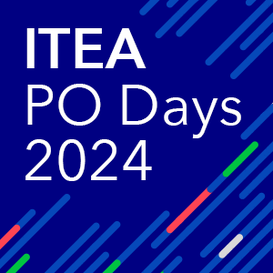
ITEA PO Days 2024 & Exhibition
Spark the next ground-breaking innovation!

Community Talk with Alexander Viehl
Motivated by real-life challenges and impactful solutions
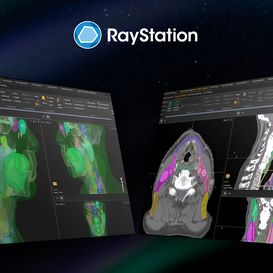
SME in the Spotlight: RaySearch Laboratories
Bringing machine learning to radiation therapy
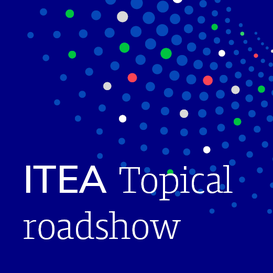
ITEA Topical roadshow
Your voice, your topics, inspiring the ITEA Community

ITEA Success story: PAPUD
A unified approach to heterogenous data
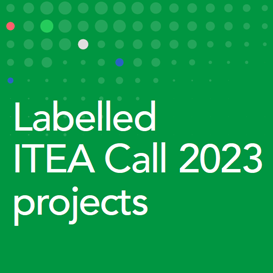
Labelled ITEA Call 2023 projects
Strong focus on Healthcare and generative AI

End user happiness: VMAP analytics
Energy-saving furnace control enhances sustainability and quality in the steel industry
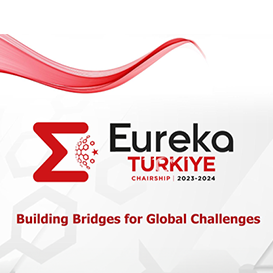
Global Innovation Summit 2024
Building bridges for global challenges


